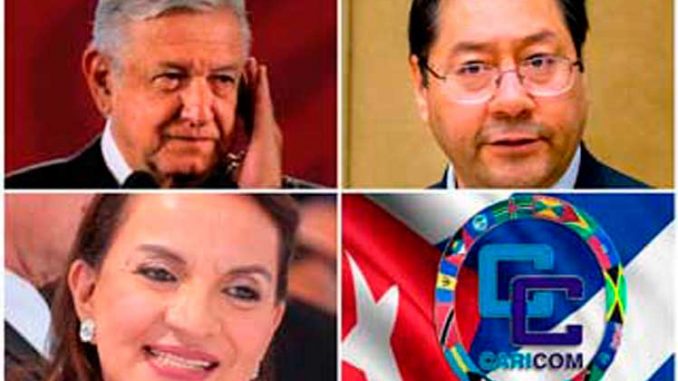
The US attempt to exclude Cuba and other countries from the Summit of the Americas has prompted Latin America and the Caribbean to take the same stance that forced Cuba’s presence in this event held in Panama (2015).
Washington’s plan of not inviting Cuba, Nicaragua and Venezuela to the summit in Los Angeles, California, prompted several governments of this region to announce they will not attend it if the hosts insist on exclusion.
In this regard, the presidents of Mexico, Honduras and Bolivia, Andres Manuel Lopez Obrador, Xiomara Castro and Luis Arce, respectively and the Community of the Caribbean (CARICOM) have already taken their stance against it.
This type of presidential summit is sponsored by the Organization of American States (OAS), a bloc that expelled Cuba in 1962 at the request of Washington and its most inconditional supporters at that time, except for Mexico.
Consequently, Havana was isolated from the system of continental summits since its beginning in 1994.
However, the growing advance of progressive governments in Latin America and the Caribbean in the past decade triggered a wave of claims to lift the US blockade and in favor of Cuba’s attendance to this type of conference. That clamor forced the OAS in 2009 to repeal the outdated resolution that, in 1962, expelled the island from this organization.
Since then, Cuba has refused to return to a bloc controlled by the United States, a stance reiterated by Cuban authorities many times.
Prensa Latina

Be the first to comment